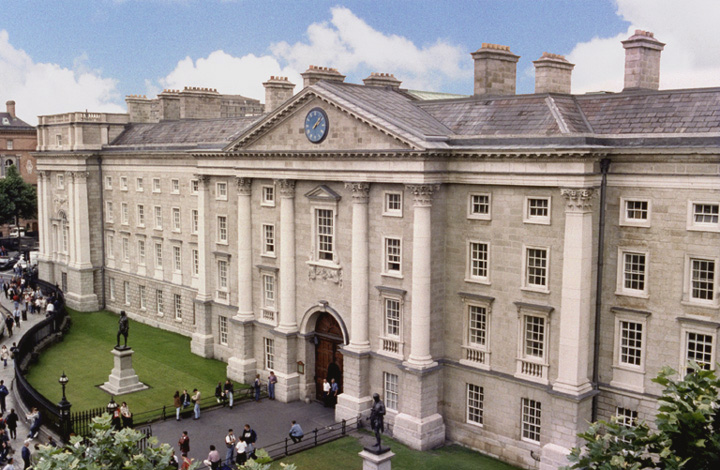Trinity is holding a vote on whether to turn the lawns at Front Gate into an urban wildflower meadow, in response to Ireland’s “biodiversity crisis”.
The move, if approved, would see wildflowers growing around the statues of Edmund Burke and Oliver Goldsmith, two of College’s favourite sons. It’s the latest in a long line of measures Trinity has taken to make itself more sustainable.
In an email sent to staff and students today, John Parnell, Trinity’s senior dean and the chair of its grounds and gardens committee, wrote that “lawn-mowing, ground preparation and pesticide control can disturb important insects that feed and nest in the soil”.
“Planting wildflowers and minimizing interference can support biodiversity, provide a habitat for native insects and food for pollinators in the city centre”, Parnell said.
The online vote, which is open to the public, launches today.
Although the area may end up looking a little messier, supporters of the idea believe it will be an important reminder to the public of what wild nature looks like.
This isn’t the first step Trinity has taken to improve the biodiversity of its campus – over the past year, Parnell wrote, it has converted 1,000 square metres of its campus to wildflower havens.
If the project gets the go-ahead, it will flower in spring and summer and be left untouched in winter.
“Even though the area outside Trinity may, on occasion, look less tidy, supporters of the idea say it will be an important indicator of what can be reasonably done in a formal setting whilst still maintaining the ‘look’ of the area”, Parnell wrote in the email.
Parnell told the Irish Times that changing the makeup of the space “will send out a strong signal that Trinity College Dublin is not bound by the past but engaged with the future”.
Trinity says the planting would most likely be a combination of annuals and perennials, and hopes many will be of Irish origin.







